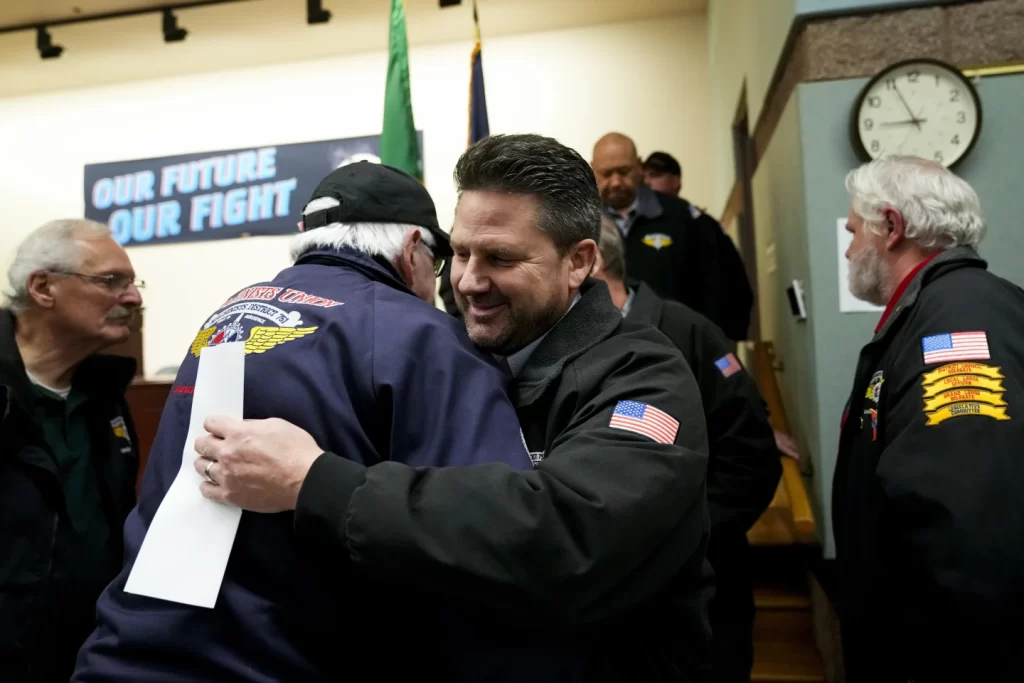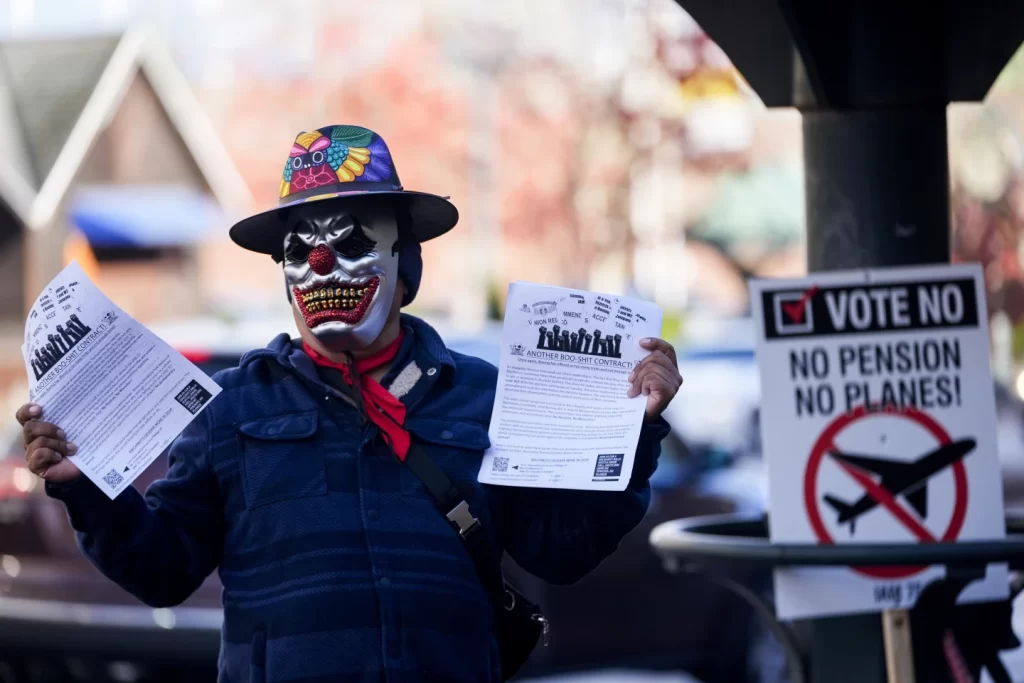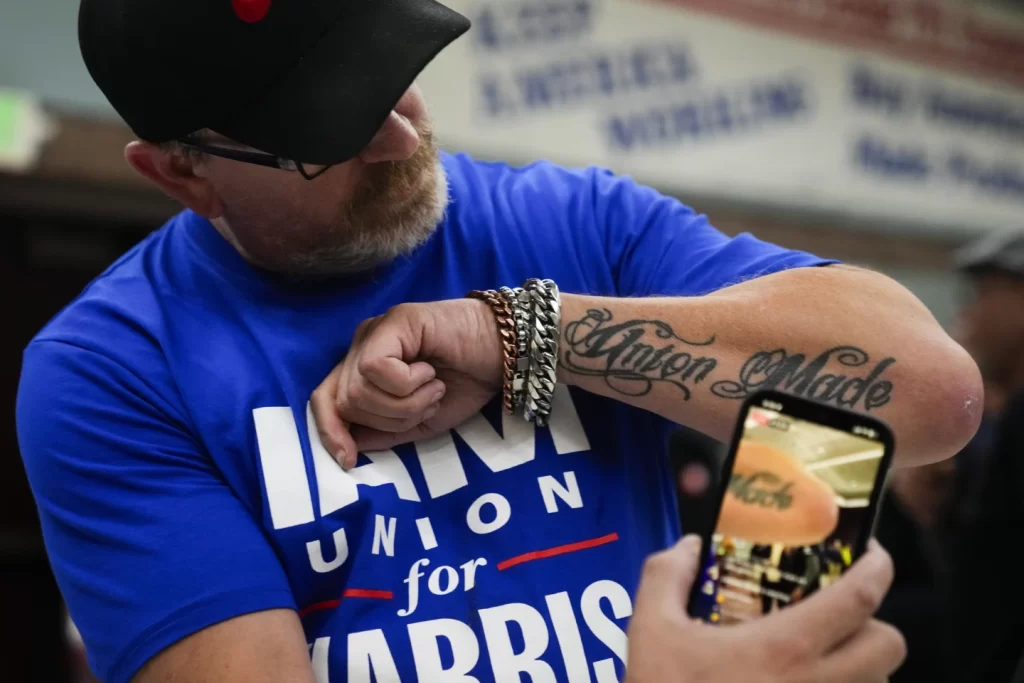Boeing machinists voted Monday to accept a new contract and end their 53-day strike, with 59% of voting members approving the company’s latest offer that includes a 38% wage increase over four years, clearing the way for the aerospace giant to resume critical aircraft production.

The International Association of Machinists and Aerospace Workers district in Seattle endorsed the agreement, which provides immediate ratification and productivity bonuses, though Boeing held firm on refusing to restore pension benefits frozen nearly a decade ago.
“It’s time for us to come together. This is a victory,” said IAM District 751 President Jon Holden while announcing the results. “You stood strong and you stood tall and you won.”
The deal will raise average annual machinist pay from $75,608 to $119,309 over the contract term, according to Boeing. Workers can return as early as Wednesday or as late as November 12, though CEO Kelly Ortberg cautioned production restart might take “a couple of weeks” due to potential retraining needs.
Worker reaction to the agreement proved mixed. Seattle-based calibration specialist Eep Bolaño, who voted for approval, characterized the outcome as “most certainly not a victory,” describing it as a pragmatic but frustrating choice. Conversely, William Gardiner, a 13-year Boeing veteran, celebrated the deal: “I’m extremely pumped over this vote. We didn’t fix everything — that’s OK. Overall, it’s a very positive contract.”

The strike’s resolution comes at a critical time for Boeing, which Bank of America estimated was losing approximately $50 million daily during the walkout. The company faces multiple challenges, including federal investigations following January’s Alaska Airlines door plug incident and production limits imposed by regulators concerned about manufacturing safety.
“While the past few months have been difficult for all of us, we are all part of the same team,” Ortberg said in a message to employees. “We will only move forward by listening and working together. There is much work ahead to return to the excellence that made Boeing an iconic company.”
President Joe Biden congratulated both parties, praising the agreement as supporting workplace fairness and retirement dignity while securing Boeing’s future in America’s aerospace sector. Acting Labor Secretary Julie Su had intervened several times in negotiations, including during the final offer.

The strike began September 13 when workers overwhelmingly rejected a 25% raise offer with 94.6% opposing. A second proposal offering 35% increases was defeated October 23, the same day Boeing reported a $6 billion quarterly loss.
This labor dispute marked Boeing’s first machinist strike since 2008’s eight-week walkout. The current agreement follows a turbulent period for Boeing, including the 737 Max crisis that led to leadership changes and a July agreement to plead guilty to fraud charges related to the aircraft’s certification.
Washington Governor Jay Inslee welcomed the resolution, stating: “Washington is home to the world’s most skilled aerospace workers, and they understandably took a stand for the respect and compensation they deserve.”
The contract’s ratification allows Boeing to restart Pacific Northwest assembly lines, though production at its nonunion South Carolina 787 facility remained unaffected throughout the strike.



